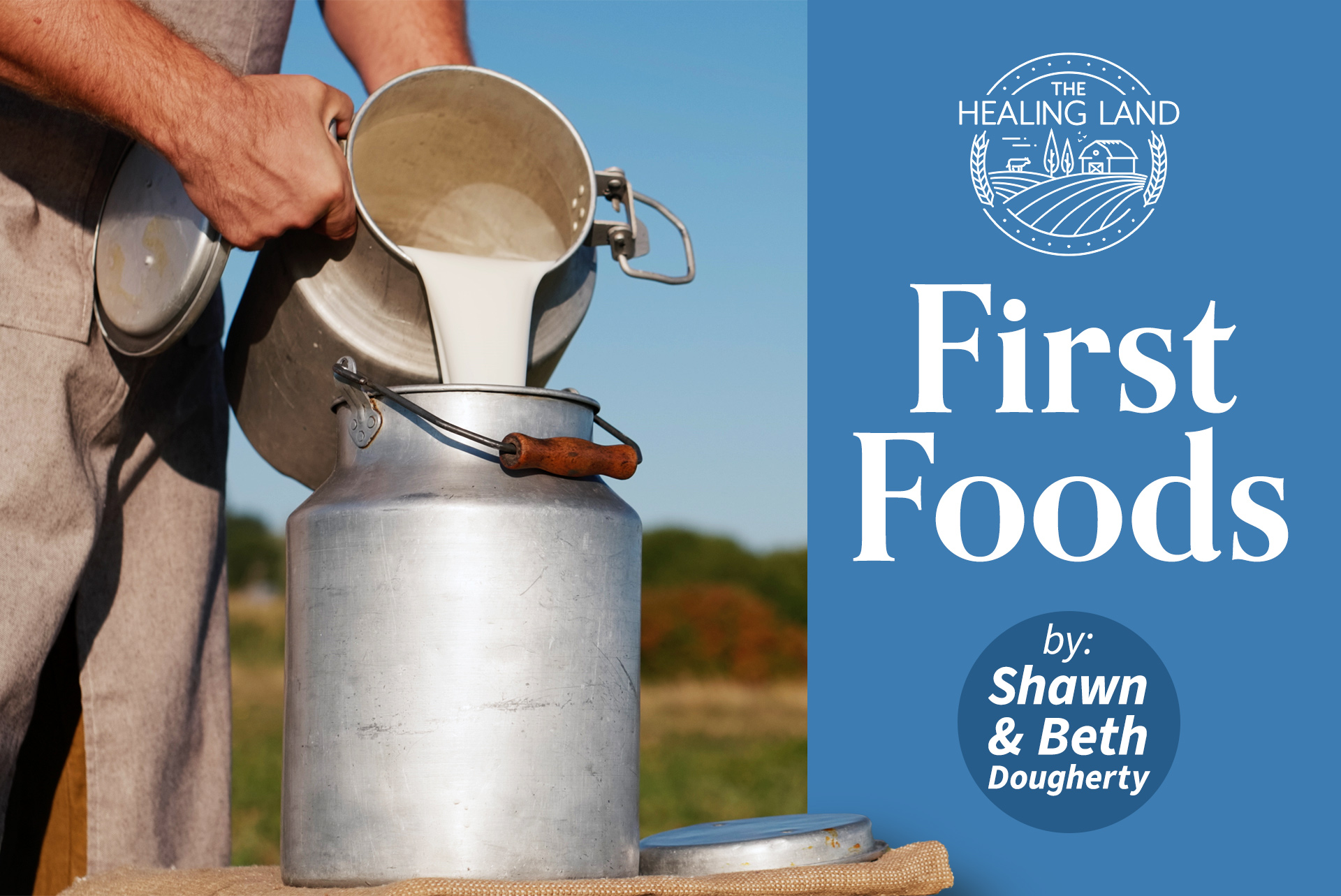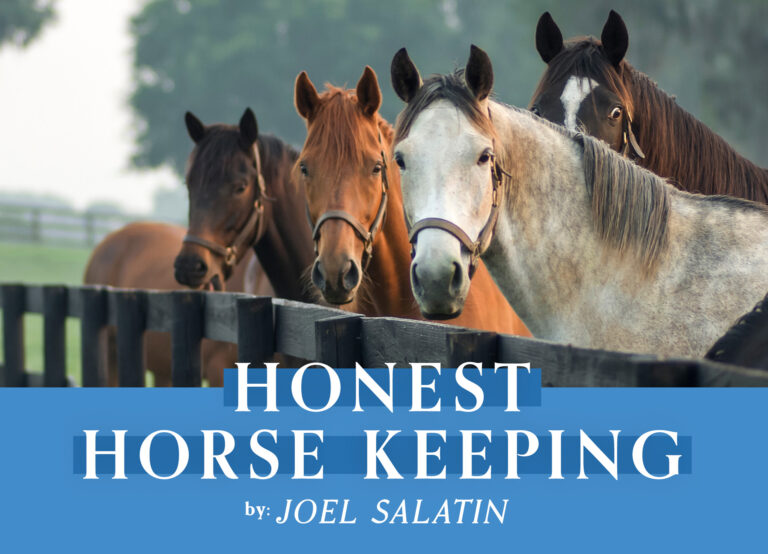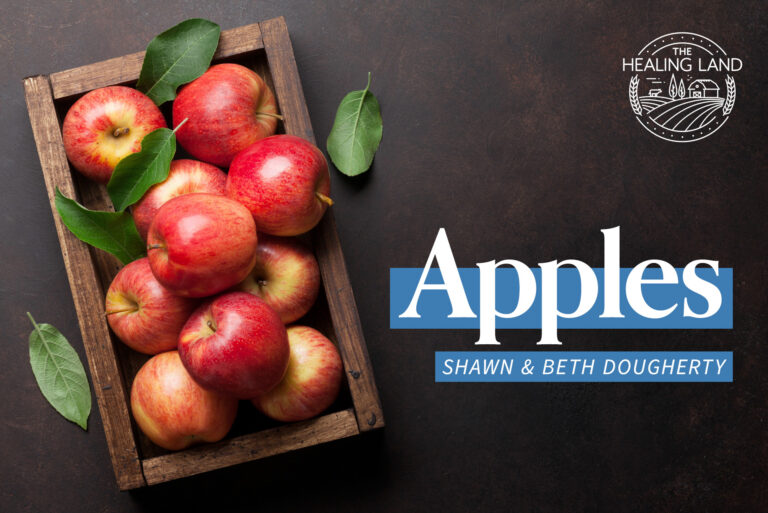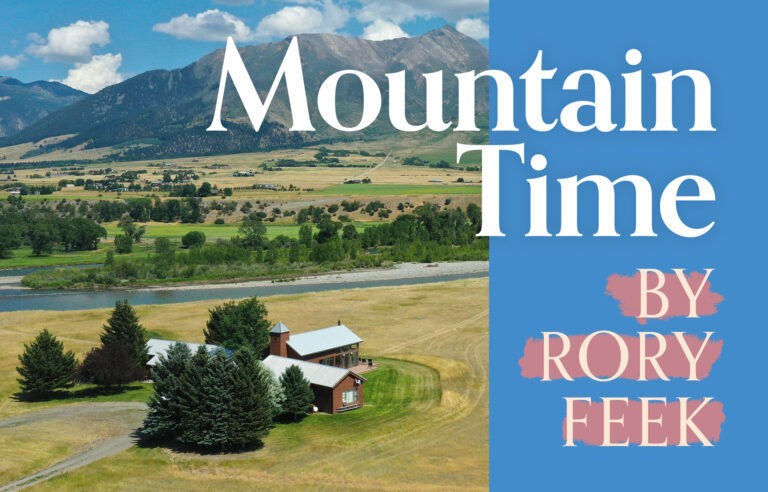By Shawn & Beth Dougherty, Plain Values
The corn in the garden is already more than knee-high, and the first planting of green beans has been gracing the supper table for more than a week, so summer must really be here. And even with temperatures in the high eighties making heat wrinkles over the county road, we’re happy to see the seasons advance. Pretty soon there will be okra to fry and tomatoes in our salads. The land is generous in July.
Out in the pasture, this year’s crop of calves are no longer the slim, fawn-like creatures they were in April and May. Weeks of rich milk have turned them into sturdy steers and heifers, grazing alongside their mothers in the tall grass, or finding cool spots at the edge of the woods when the sun gets high. Various shades of fawn, brown, and black, their coats are satin-sleek, shiny against the deep green forage. They are the very picture of health.
There is something right about living here, tending these animals and plants, and being rooted in this place. We have never really been interested in taking vacations to Disneyland anyway, which is a good thing, because people who keep livestock can’t usually go away for long periods. If you seriously propose to grow your own food, you have to be there to take care of things. Farmers don’t find it easy to travel.
This time of year that’s no real sacrifice, though. Cooler mornings are good for working in the gardens, and in the heat of the afternoon we might swim in the pond, or pick raspberries at the shady wood’s edge. When there’s a surplus of milk, we’ll make cheese. Curds form quickly in hot weather, the probiotic lactobacilli in the milk being most productive when they are warm.
The biological activity of raw milk—it comes from the cow complete with its own array of beneficial biota—is one of the things that make it such an ideal health food. Ironically, that same probiotic energy makes people worry about consuming it. Is it safe to eat or drink something that ferments so readily? In fact, doesn’t the USDA warn specifically against consuming raw milk?
Dairy Dangers?
It’s funny that this perfect food has a less-than-perfect reputation. Raw—that is, unprocessed—milk is a controlled substance in most of the fifty United States. You can’t buy it in the store; in fact, the federal government bans raw milk sales across state lines. If raw milk is so good for you, why does the USDA issue warnings against drinking it?
Honestly, back when we started milking our own cow, this question really wasn’t on our minds! The sweet milk we were bringing into the house in buckets every day was delicious, and the children were so glad to have all they wanted to drink. Our grandfathers, we knew, had kept dairy cows and raised their large families on farm milk, and we intended to do the same.
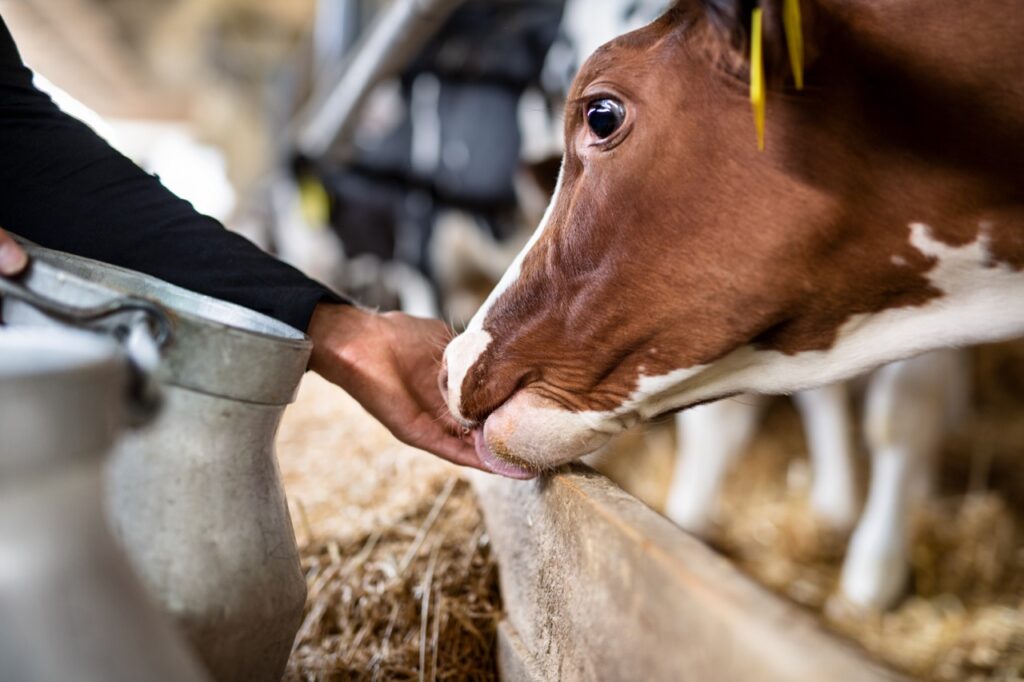
Pretty often, though, we encountered people or opinions that were adamantly opposed to our plans. We discovered that in the state of Ohio, if raw milk was consumed in our house, we were supposed to have a sign, prominently displayed, warning people of this dangerous practice. Yes, really! We knew that medical professionals looked with disapproval on raw milk being given to children. Even some friends and family voiced concern over what they considered an unnecessary risk for our family.
All this over a food that had been in the human diet for thousands of years! How could there be such a difference of opinion?
All Milk is Not Equal
Historically, human beings have been consuming raw milk since the domestication of the first ruminants. Back then there were no stainless steel buckets or microfiber filters; our great-great-greats stored milk in vessels of wood, clay, or even hide. They weren’t worried about germs, but they knew how to use milk in dozens of delicious ways to feed their families year-round, with every stage of fermentation having its appropriate uses. Generation after generation grew up drinking milk, and nothing but good came of it.
So why does the USDA ban the stuff?
Well, a lot has changed in the past couple of centuries, including the ways we keep, feed, and milk dairy cows. Big modern cities require food to be shipped from farther than ever before. Dairies may be literally a thousand times bigger than they used to be. To produce so much milk and ship it long distances, we’ve turned to mechanization.
Today milk is moved by pipeline, stored and shipped in enormous tanks, and sits on supermarket shelves for days or weeks. All of the large-scale systems used for this work are in near-constant use: when cows are being milked two or three times a day, you can’t take apart all the equipment between milkings and give it a good scrubbing. Instead, it is flushed with caustic chemicals and very hot water to kill residual bacteria.
But this doesn’t always work. Biofilms inside milking equipment can be home to pathogenic biota—’bad bugs,’ like listeria, campylobacter, and E.coli. Even if these critters didn’t make you sick, they would ferment your milk, ‘spoil’ it, before you had a chance to drink it. This is why store-bought milk is pasteurized, and the same story explains why our home-produced, home-consumed milk doesn’t need to be. When the USDA warns against drinking raw milk, they aren’t talking about ours.
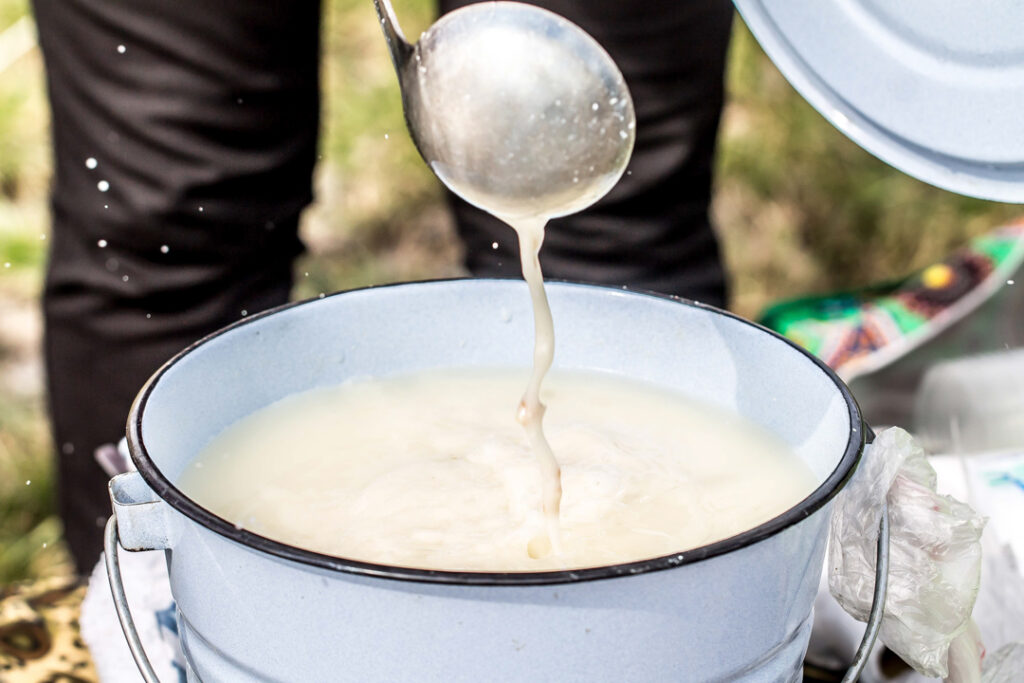
Actually, clean raw milk from a cow that eats the food God intended for her – grass – is one of the most perfect foods in the world. Think about it: milk is the sole food God created to feed His baby mammals, new life to be nourished by their mothers’ dedicated and loving care. Milk’s nutritional profile makes it a whole food; its naturally present probiotics make it a health food, too.
So it’s no wonder one of our favorite things about keeping a family cow is all the wonderful milk it makes available on the family table. We drink gallons of milk every day, and dairy products like cheese, butter, yogurt, and sour cream feature largely in every meal. And while it is delicious, milk isn’t just a food for us; it’s a health regimen.
Work of Our Hands
Milking time is a quiet, peaceful time on our farm. The cows go willingly into the stanchions. If we are offering a treat of hay or kelp, they tuck in. We scoot our stools up close; with the zing of milk into the bucket, the sweet smell of fresh milk rises into the air. There’s plenty of time to think.
Why do we choose to live this way? One reason, and a very real one, might be that it just feels right. When we sit down to milk our cows, we’re continuing a line of human endeavor that has blessed people for thousands of years, and we’re using the same tools, the same methods folks have always used, because they work. We don’t need anyone’s permission. We don’t need electricity or fuel. Just us, the cow, and a few moments of peace.
We’re grateful that God has made things this simple.
This article was published in the July 2022 issue of Plain Values Magazine. If you want the latest stories every month, subscribe to the magazine at plainvalues.com. As a special thanks, get 10% off your subscription with the code “GAB23”!

Shawn and Beth Dougherty live in eastern Ohio, where their home farm is 17-acres designated by the state as “not suitable for agriculture.” Using grass as the primary source of energy, they raise dairy and beef cows, sheep, farm-fed hogs, and a variety of poultry, producing most of their food, and feed, on the farm. They are also the authors of The Independent Farmstead, published by Chelsea Green Pub.


